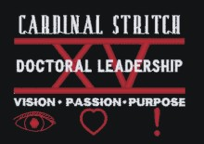I was asked to be part of a team that was put together in consideration of applying for an i3 grant (Investing in Innovation Fund from the federal government) with an area STEM group. I was pleased about the consideration because of implications it would have on the work I was doing with Engineering is Elementary for Wisconsin Education Innovations. I was also excited about the opportunity to continue to develop my grant writing skills. But the skills needed for this grant required more than that...
As the meeting began, the cast of characters told it's own story. Yes, we did have some K-12 school people, many involved in Project Lead the Way. There were several people from the Milwaukee School of Engineering and a couple that were PhD's that either had been or currently were involved deep in research projects.
In front of us was placed a copy of the federal register that outlined the grant requirements. One of the biggest changes in this round of funding is the fed's priorities of funding are directly tied to research. The amount of funding you could apply for was directly tied to the amount of evidence (research) that had been done. This may annoy some of us in K-12 education, but the bottom line is we really need to find out what is working well, which is a harder task than one might first think. Evidence as defined in this grant application was something like this:
"Strong evidence means evidence from previous studies whose designs can support causal conclusions (e.e., studies with high internal validity)...more than one well-designed and well-implemented experimental study or well-design and well-implemented quasi-experimental study...or one large randomized controlled mulitsite trial that supports the effectiveness of the practice, strategy, or program."
It goes on, but I think you get the "gist". Many of the people in our room could assume what those terms might mean, but it really felt good to REALLY know what those terms mean and have examples in my head of what that would look like. In fact, it was great to enter into discourse about some of the definitions with current researchers in the field about what studies would actually fit those descriptions. As I watched others in the room listen to the discourse, I could see myself a few years back, listening intently but not fully understanding what any of that meant. Most sat quiet and waited for the research discussion to be over to join the conversation. It was an enlightening experience!
Bottom Line:
I'm definitely getting my money's worth! :)



No comments:
Post a Comment